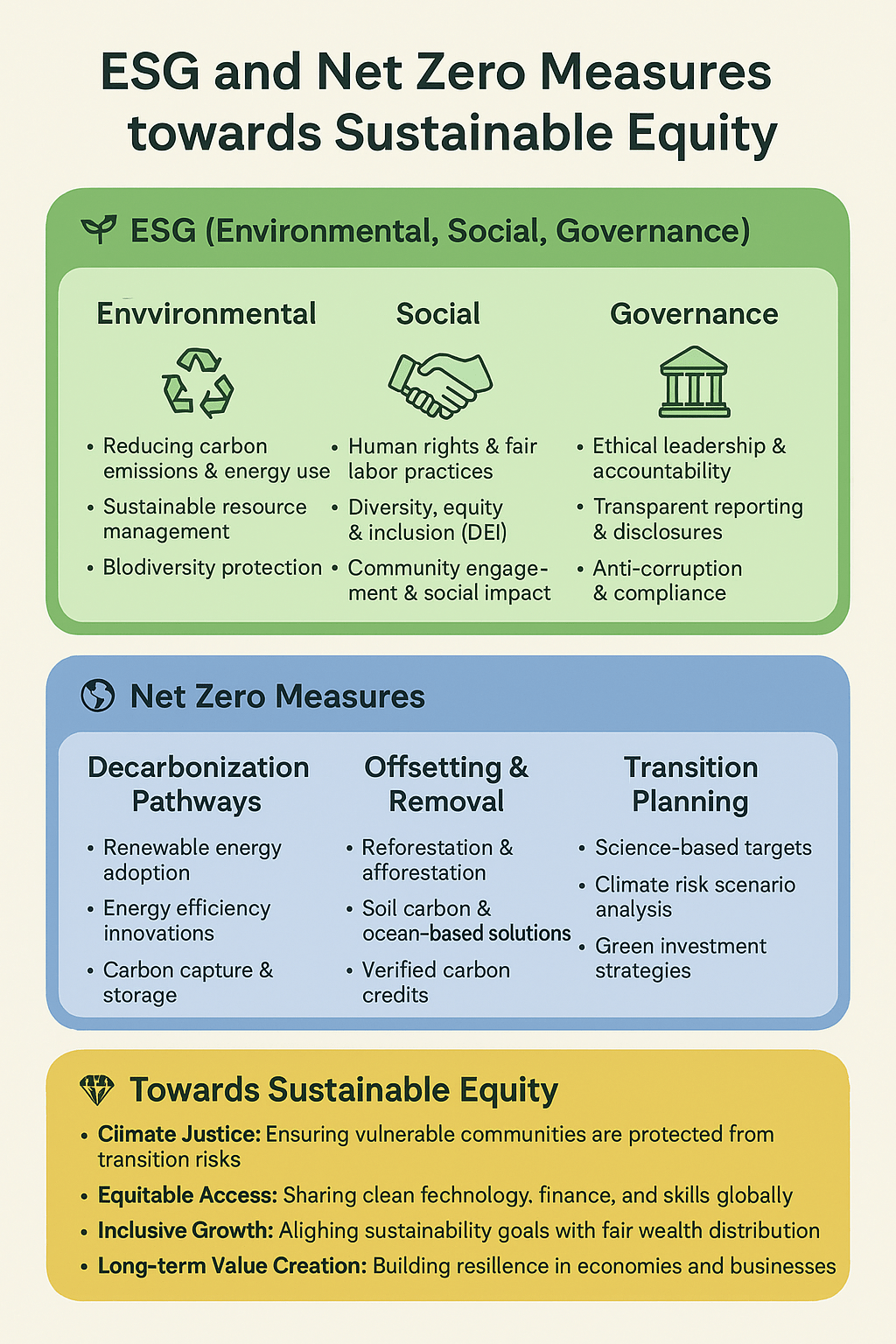SCHOLARLAB FOUNDATION
ESG and Net Zero Measures towards Sustainable Equity

ESG and Net Zero Measures towards Sustainable Equity
Scholar Lab Foundation is launching a Comprehensive Training Program on ESG & Net Zero aimed at empowering organizations, professionals, and communities with the knowledge and tools to transition toward sustainable business practices. The program is designed to build capacity in ESG (Environmental, Social, Governance) frameworks, Net Zero action planning, and carbon trading mechanisms, aligning with global sustainability goals.
- ESG Framework & Reporting: Hands-on training on ESG fundamentals, ESG form filing, disclosures, compliance, and integration of sustainability into corporate governance.
- Net Zero Action Planning: Practical sessions on defining Net Zero targets, developing measures, budgeting actions, and aligning with energy, water, air, and waste management strategies.
- Economics of Net Zero: Detailed analysis of cost-benefit models, investment planning, and ROI for Net Zero initiatives to support sustainable economic decision-making.
- Carbon Footprint Management: Methodologies for measuring, monitoring, and reducing carbon footprints across energy, water, air, and waste streams with sector-specific examples.
- Carbon Trading & Revenue Opportunities: Training on global and national carbon markets, trading mechanisms, certification processes, and revenue generation models from carbon credits.
- Model Development: Development of sector-specific Net Zero models and frameworks that can be applied to industries, institutions, and communities for long-term sustainability.
Objectives
- Equip participants with knowledge of ESG frameworks and compliance requirements.
- Enable organizations to develop actionable Net Zero roadmaps and budgets.
- Provide tools for measuring, reducing, and offsetting carbon emissions.
- Unlock revenue opportunities through carbon credit trading and sustainability finance.
- Develop holistic, replicable models for ESG integration and Net Zero adoption.
Expected Outcomes
- Enhanced capacity of organizations to comply with ESG and Net Zero regulations.
- Actionable plans for carbon footprint reduction in energy, water, air, and waste streams.
- Established pathways for participation in carbon markets and revenue generation.
- Strengthened partnerships between industry, academia, and communities for sustainability.
- Long-term contribution to India’s and global Net Zero and climate goals.
